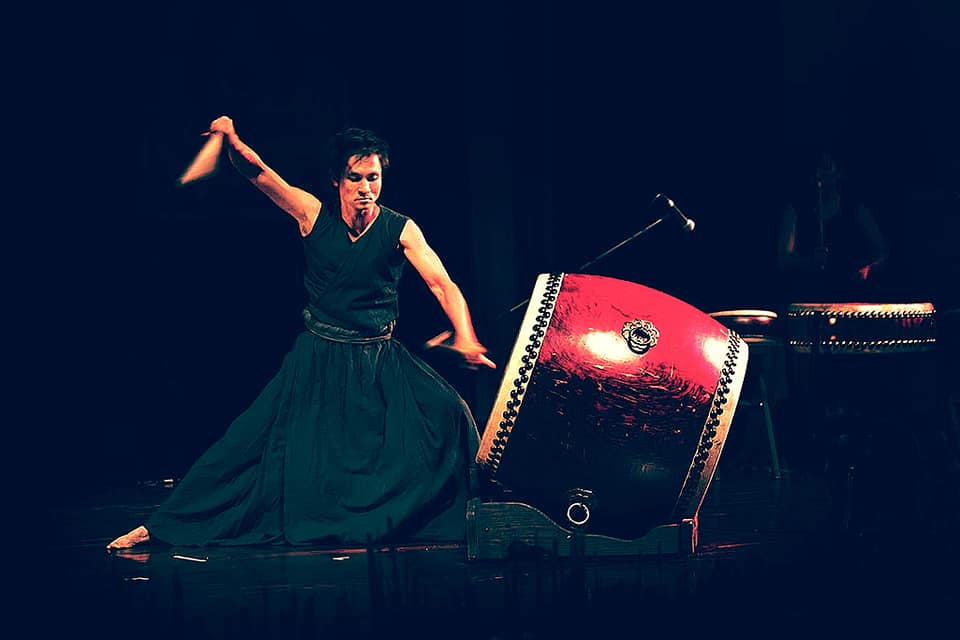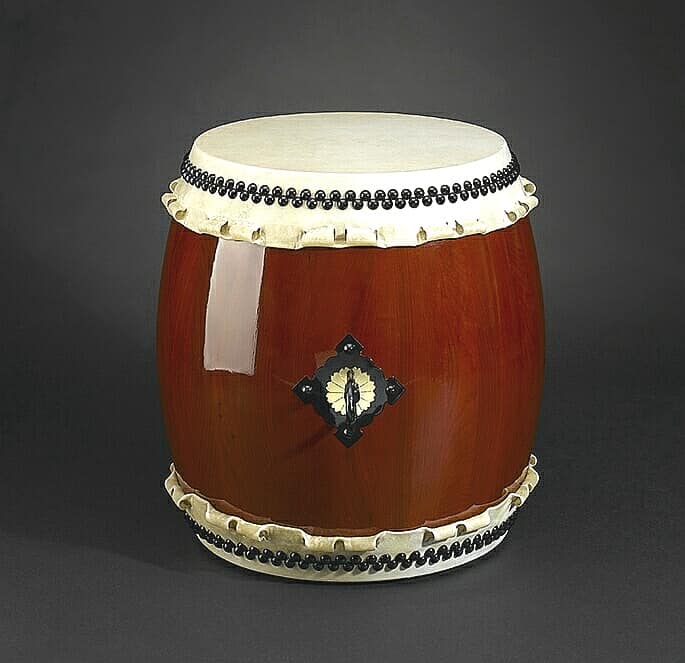The origin of the instruments is unclear, though there have been many suggestions. Historical accounts, of which the earliest date from 588 CE, note that young Japanese men travelled to Korea to study the kakko, a drum that originated in South China. This study and appropriation of Chinese instruments may have influenced the emergence of taiko.
Certain court music styles, especially gigaku and gagaku, arrived in Japan through both Korea and China. In both traditions, dancers were accompanied by several instruments that included drums similar to taiko. Certain percussive patterns and terminology in togaku, an early dance and music style in Japan, in addition to physical features of the kakko, also reflect influence from both China and India on drum use in gagaku performance.
Archaeological evidence shows that taiko were used in Japan as early as the 6th century CE, during the latter part of the Kofun period, and were likely used for communication, in festivals, and in other rituals.This evidence was substantiated by the discovery of haniwa statues in the Sawa District of Gunma Prefecture.

Two of these figures are depicted playing drums; one of them, wearing skins, is equipped with a barrel-shaped drum hung from his shoulder and uses a stick to play the drum at hip height. This statue is titled “Man Beating the Taiko” and is considered the oldest evidence of taiko performance in Japan. Similarities between the playing style demonstrated by this haniwa and known music traditions in Korea and China further suggest influences from these regions.
The Nihon Shoki, the second oldest book of Japanese classical history, contains a mythological story describing the origin of taiko. The myth tells how Amaterasu, who had sealed herself inside a cave in anger, was beckoned out by an elder goddess Ame-no-Uzume when others had failed. Ame-no-Uzume accomplished this by emptying out a barrel of sake and dancing furiously on top of it. Historians regard her performance as the mythological creation of taiko music.
Source: Facebook/aikido



